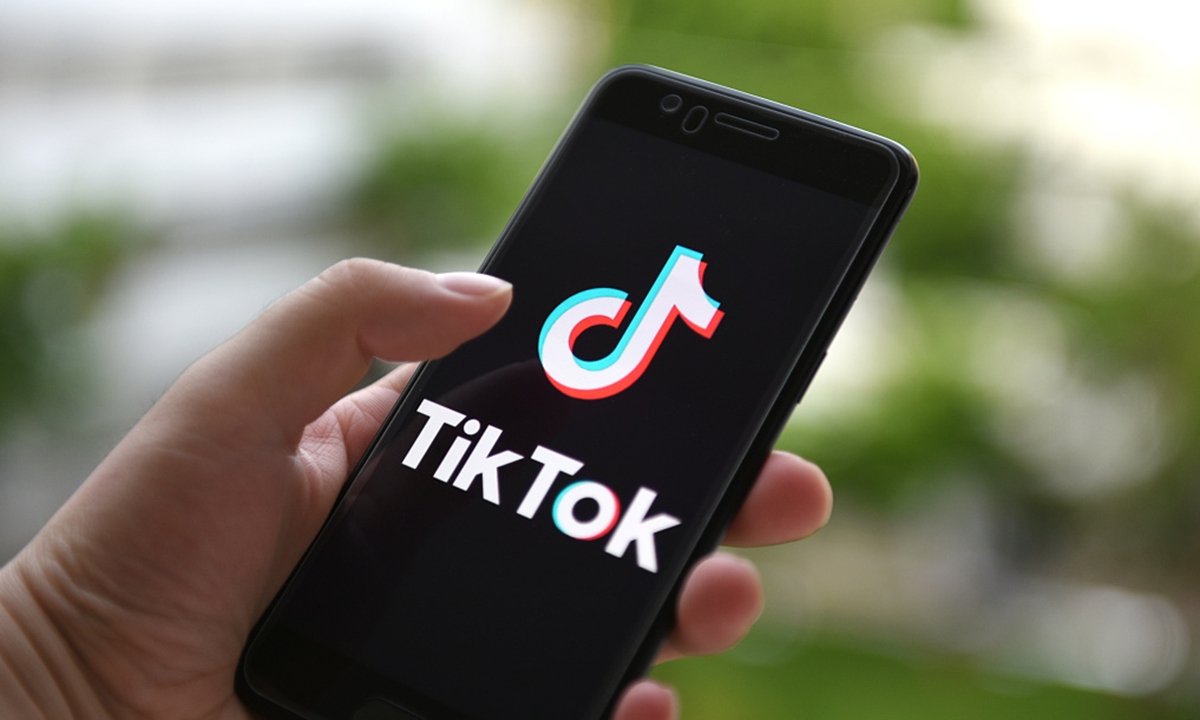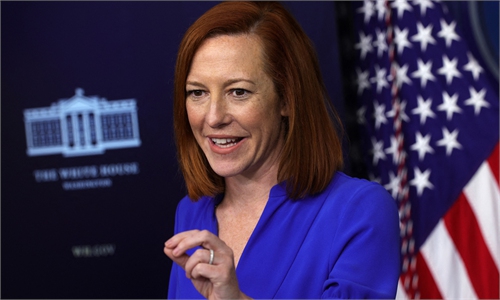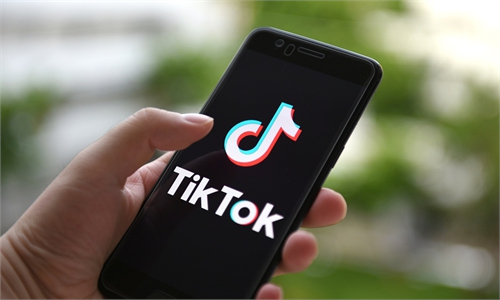
TikTok Photo:VCG
ByteDance, the Chinese owner of popular short-video platform TikTok, denied media reports which claim the Beijing-headquartered internet company has set up a subsidiary on the island of Taiwan to tout for business.
ByteDance said recent reports suggesting it has set up a subsidiary in Taiwan were incorrect. “The company has not established any legal entities in Taiwan,” it said in a statement sent to the Global Times on Tuesday.
The response came after Taiwan’s Liberty Times newspaper reported on Sunday that ByteDance had set up a subsidiary on the island of Taiwan in November to tout for business, and it has been recently recruiting people actively with headcounts expected to come in at 20.
The move is in contradiction with local law that social media platforms from the Chinese mainland are not allowed to have commercial operations on the island of Taiwan, the report said.
Taiwan’s “Mainland Affairs Council”, responding to that report, said its working group had discovered that “there was indeed a suspected breach of the law”, and legal authorities were investigating.
The popular app has been facing mounting pressure in the US as a number of US states move to ban the use of TikTok on government-managed devices citing so-called national security concerns.
Some 19 of the 50 US states have now at least partially blocked access on government computers to TikTok. Most of the restrictions were put in place in the past two weeks, Reuters reported.
TikTok on Monday said in a statement that the company was “disappointed that so many states are jumping on the political bandwagon to enact policies based on unfounded falsehoods about TikTok that will do nothing to advance the national security of the US.”
Some US’ politicians’ hype on Chinese firms will fail to achieve their goal as groundless crackdown won’t hinder the demand of US consumers for Chinese goods and services, experts told the Global Times.
Spreading disinformation and using it to suppress Chinese firms has become a common practice of the US, Mao Ning, a spokesperson for China’s Foreign Ministry, said in November. Mao noted that China firmly opposes those comments, and urges the US to take a more responsible and practical approach and abide by fair, open and non-discriminatory international rules.
In 2020, former US President Donald Trump issued an executive order to ban TikTok operations in the country, citing “national security concerns.” Later, the company took legal action against the order.
The US government’s Committee on Foreign Investment in the US (CFIUS), which reviews US acquisitions by foreign acquirers for potential national security risks, in 2020 ordered ByteDance to divest the unit. CFIUS and TikTok have been in talks for months aiming to reach an agreement.
After Joe Biden took office, he revoked the Trump directive in 2021, asking the Treasury Department to examine “security concerns” associated with the app.
TikTok again became the highest-grossing app in the world even as the overall market is seeing a slight decline. TikTok’s global app along with Douyin, its sister app, retained the position as the top-grossing non-game app across the App Store and Google Play combined, with approximately $914.4 million in consumer spending in the third quarter, according to a report by Sense Tower.
Global Times


